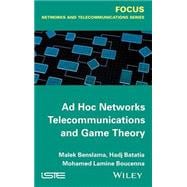Random SALOHA and CSMA protocols that are used to access MAC in ad hoc networks are very small compared to the multiple and spontaneous use of the transmission channel. So they have low immunity to the problems of packet collisions. Indeed, the transmission time is the critical factor in the operation of such networks.
The simulations demonstrate the positive impact of erasure codes on the throughput of the transmission in ad hoc networks. However, the network still suffers from the intermittency and volatility of its efficiency throughout its operation, and it switches quickly to the saturation zone. In this context, game theory has demonstrated his ability to lead the network to a more efficient equilibrium. This, we were led to propose our model code set that formalizes the behavior of nodes during transmission within SALOHA networks and CSMA respectively.








